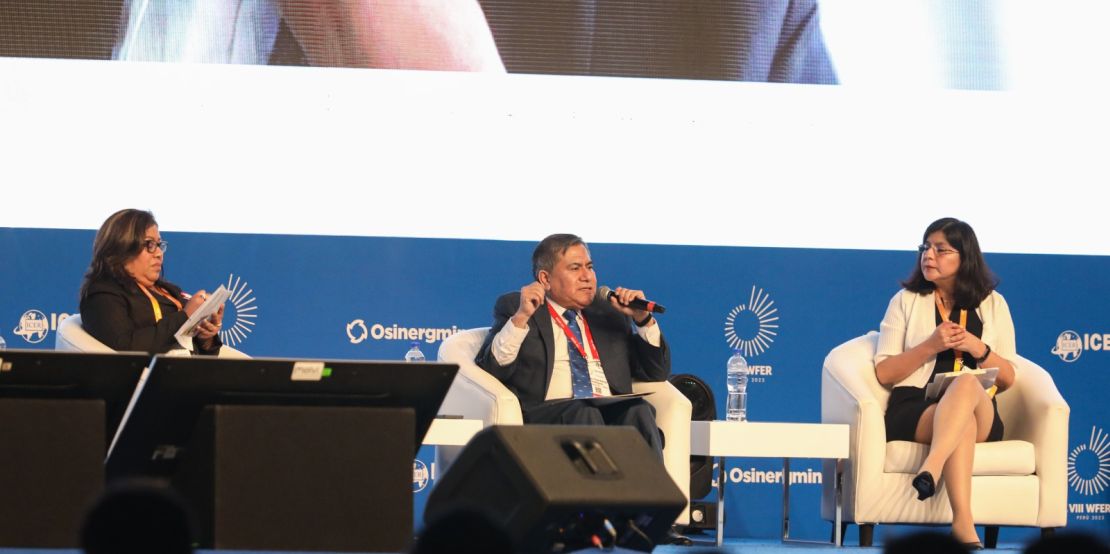Speakers at the VIII World Forum on Energy Regulation highlighted mineral opportunities and the role of the regulator in the energy transition process

On the second day of the VIII World Forum on Energy Regulation, which has the participation of more than 40 presidents and representatives of regulatory bodies from the five continents, organized by Osinergmin, the importance of the mining-energy binomial within the transition was emphasized energetic. Tilsa Oré, researcher in Energy and Market Design at the Baker Institute for Policies, said that "we are forgetting a super important detail: investments in strategic minerals for the energy transition." For his part, the president of the Board of Directors of Osinergmin, Omar Chambergo highlighted "There is no mining development without energy transition and vice versa." In this regard, Luis Moreno, director of the Department of Energy Mining Law at the Externado de Colombia University, highlighted the importance of promoting investment in silicon, copper, nickel, lithium, cobalt, among others. This approach would be a key aspect for Peru, given its extensive wealth in mining resources and position in world copper production.
Subsequently, representatives from different countries around the world shared their experiences regarding how they are working to close gaps or take advantage of opportunities regarding the energy transition. Fernando Alfredo Moscoso Lira, Manager of Planning and Surveillance of Electricity Markets at the National Electricity Commission of Guatemala pointed out that his country's concern is to have an adequate energy storage system, given that 80% of its energy is renewable. Anna Fung, Vice Chair of the British Columbia Public Utilities Commission, said the energy transition favors Canada's natural gas sector as it is happening in small numbers. The presentations also highlighted the need to work on a local strategy towards the energy transition.
During the afternoon, the role of regulatory bodies in the energy transition resounded in the rooms of the Lima Convention Center. Paulo Oliveira, Management Advisor in the Infrastructure and Networks Directorate of the Portuguese Energy Services Regulatory Authority, noted that "European regulators have adopted an adaptive regulation approach for the energy transition." “In Portugal we have carried out several pilot regulation projects, for example, how can we have a standard rate”, added the consultant. Tatsuya Shinkawa, Secretary General of the Japan Gas and Electricity Market Surveillance Commission, pointed out that "in Japan there is a great development of solar generation, but it is important to have good storage in the summer and know how to manage it." For her part, Natasha Avendaño García, Former Expert Commissioner of Colombia's Regulatory Agency of Energy and Gas (CREG), argued that "for the energy transition it is necessary to have a stable regulatory environment, that is, an environment that promotes investment and innovation." The speaker specified that "it is necessary to maintain the role of regulators so that they can supervise and guarantee independence without pressure from the government or the private sector."
The World Forum on Energy Regulation is the most important energy regulation event in the world and for the first time a South American country is the venue. On August 24, the inauguration was in charge of the Minister of Energy and Mines, Oscar Vera, the president of the International Confederation of Energy Regulators, David Danner, and the president of the Board of Directors of Osinergmin, Omar Chambergo.
